Popular Charter Bus Manufacturers:
Motor Coach Industries (MCI)
Motor Coach Industries (MCI) is a multinational bus manufacturer that provides buses for both public and private transportation. After nearly 90 years in the motorcoach business, they’ve become one of the largest and most-trusted bus providers in America—which explains why they, according to their website, sell more coaches than anyone else.
Through the decades, MCI has introduced various groundbreaking models and maintained a reputation for producing some of the best coaches in the industry. Though they manufacture coaches for private use, their public transportation coaches have received a great deal of acclaim, and were, in 2011, reported to be 10 times more reliable than the closest competitor.
Keep reading to learn about their extensive history and see what their fleet might look like in the near future!
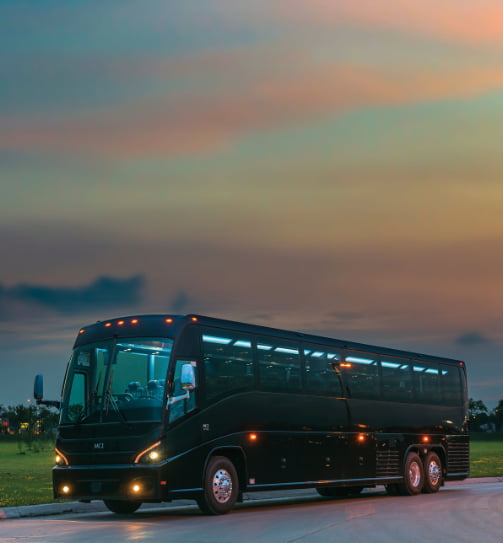
HISTORY of MCI
MCI’s story begins with a small sketch made at the repair shop of Harry Zoltok, the founder of MCI and the company’s president for its first nearly 70 years, and continues into today with their commitment to producing eco-friendly coaches that are built to last.
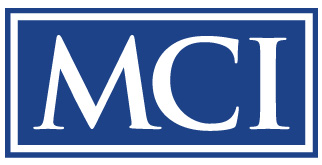
-
1933
Harry Zoltok, a repair shop owner, introduced a new 11-passenger vehicle design to his factory workers. The repair shop, known then as “Fort Garry Motor Body and Paint Works,” becomes a workshop for future coaches.
-
1937
The shop designs and produces its first full line of coaches for Grey Goose Bus Lines (now a subsidiary of Greyhound Canada).
-
1939
Fort Garry releases the Model 150, a transit bus that’s the first to use exterior stainless steel panels.
-
1941
Zoltok’s company adopts the name “Motor Coach Industries” and takes a slight pivot to accommodate for World War II’s production needs, temporarily manufacturing Jeep trailers, rescue watercraft, and army truck bodies.
-
1942
MCI designs and produces “Number 1532,” Canada’s first electric trolley bus. Unfortunately, the bus never becomes a regular production item.
-
1945
World War II ends and MCI fully returns to business as usual. Their first rear-engine coach, the Model 100, is produced.
-
1950s
Throughout this decade, MCI continues to innovate by launching new models and the “MC” series of coaches—most notably the MC-1, which incorporates a heating system.
-
1958
The company introduces the MC-6, the very first 40-foot coach.
-
1959
MCI’s MC-9 is produced, which would become Canada’s all-time best-selling coach (until the later introduction of the D-Series). MCI’s popularity soars, and a record 26 coaches are produced this year.
-
1962
MCI enters the U.S. market with a new plant in Pembina, North Dakota and develops 5 new coach types throughout the rest of the decade.
-
1967
MCI’s brand-new MC-6 “Super Cruiser” is manufactured for Greyhound. This landmark model features an all-stainless-steel frame and a V2 engine.
-
1968
MCI reaches a new milestone by producing 500 coaches in one year, compared to only 26 in 1959.
-
1978
The MC-9 Crusader II is produced and soon becomes the best-selling model in the North American intercity coach industry.
-
1984
MCI becomes the first coach manufacturer to add wheelchair lifts to its vehicles, six years before the passing of the Americans with Disabilities Act.
-
1990
After the passing of the ADA, MCI begins producing a fully-accessible coach with a new wheelchair lift and accessible restroom.
-
1994
MCI’s new MC-9 becomes the nation’s all-time best-selling coach. Over 6,000 vehicles were sold between 1978 and 1994.
-
1995
The MCI D-series is introduced, the first of which accommodates 55 passengers with an expanded 45-foot length, granting it greater popularity than the MC-9. Two and a half decades later, there are still over 7,700 D models on the road in the US and Canada.
-
1997
A new era of coach manufacturing is ushered in with the launch of MCI’s now-retired Renaissance model, known for its luxurious finishes, patented spiral entryway, and three-year warranty (the longest warranty in the industry at the time).
-
2000
MCI is part of the then-largest coach transaction ever recorded, in which New Jersey Transit paid $500 million for 1,400 of MCI’s commuter coaches.
-
2001
The J4500 model is launched which, like many of its predecessors, is destined to become a bestseller, officially acquiring the title in 2004.
-
2002
MCI produces the first hybrid-electric commuter coach, some of which are still in operation in 2020.
-
2007
MCI officially commits to providing “greener” transportation solutions. New models are released with EPA-mandated clean-diesel engine technology that produces smoke-free exhaust. Drafting begins for a second generation of hybrid diesel coaches.
-
2010
The motorcoach industry’s annual trend survey shows that MCI’s J4500, D4500, and D4505 models hold the top 3 “bestseller” spots.
-
2016
After New Flyer’s acquisition of MCI in 2015, the company sees another record-breaking year of production, with over 3,500 units produced within one year.
MCI Today
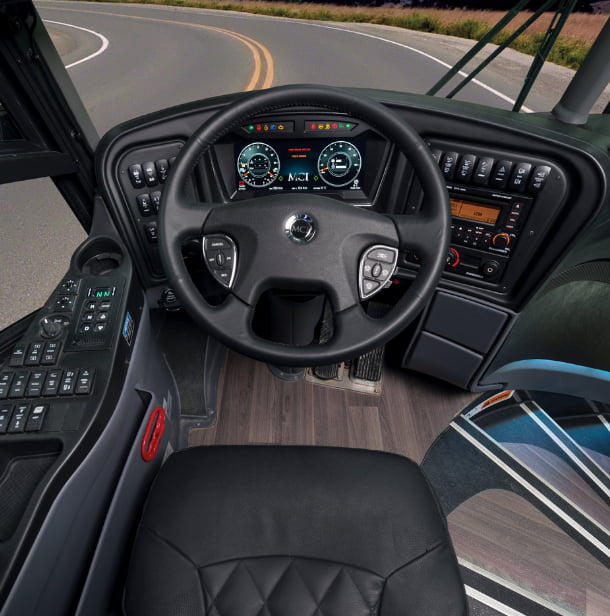
Today, MCI focuses on merging luxury, reliability, and eco-friendliness in their new models, adding features such as clean-diesel engines with near-zero emissions. But even in the wake of modern luxuries and environmentally-friendly necessities, MCI hasn’t forgotten their roots: in 2013, to celebrate the company’s 80th birthday, MCI rededicated their business to building the most reliable coaches in North America.
In a 2018 article published by Metro Magazine, MCI Executive VP Patrick Scully explained that motorcoach transportation must be affordable, sustainable, and scalable to meet the demands of consumers, businesses, and politicians alike. Luckily, with a focus on environmental impact as well as luxurious interiors and long-term reliability, MCI is prepared to address all three of those points and plans to do so as they move forward.
As of 2020, MCI has two new all-electric coaches in development, which we’ll discuss in just a moment. These coaches are predicted to have all of the typical accoutrements you’ll find on an MCI bus that make it comfortable and reliable, plus an extensive range and a fast-charging battery.
Left image courtesy of MCI.
MCI's Fleet
MCI manufactures 10 total coach models, all of which fall under either the J-Series or the D-Series.
Members of the J-Series come in either 45-foot or 35-foot lengths, the larger of which leaves plenty of space for up to 60 passengers and an expanded onboard restroom that you won’t find with other manufacturers. The 35-foot J3500 coach can seat up to 44 passengers—the largest seating capacity of any 35-foot coach on the market. An all-electric e-Fan system also boosts the fuel efficiency of all J-Series models.
MCI’s D-Series coaches are designed to be low-cost without sacrificing reliability or performance. The D4500 and the D4505, two of MCI’s legendary best-sellers, are known for their durability and dependability. These coaches are no longer manufactured but can sometimes still be found on the road today.
Right image courtesy of MCI.
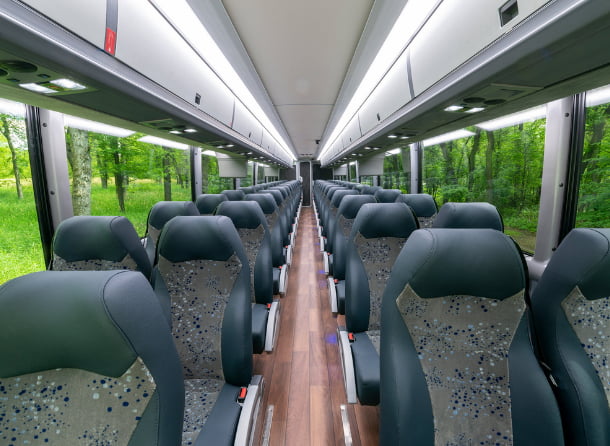
The J4500: “America’s best-selling touring coach”
MCI’s J4500 is the country’s best-selling coach, and for good reason. The 45-foot length provides the industry’s largest interior floor space with comfortable seating for up to 60 passengers. Extra bells and whistles like a customizable entryway light that projects custom logos, LED lights to create custom color environments, and MCI-exclusive suspension technology for a super-smooth ride make it a popular pick for anyone who’s looking to impress. Smaller groups who want to impress but don't quite need space for 60 people can opt for the MCI J3500, the J4500's smaller counterpart.
Right image courtesy of MCI.
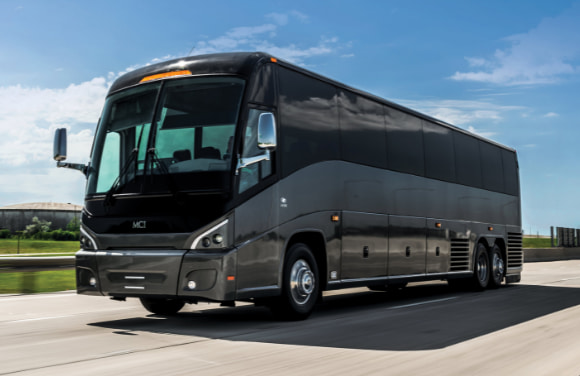
The J4500E and D45 CRTe LE: MCI’s latest all-electric models
In 2020, MCI plans to release two new battery electric models, one under the J-Series and one under the D-Series. Each coach will feature a high-torque Electric Drive System to ease the transition to long-distance high-speed highway driving. MCI also promises a plug-in battery that can reach a 100% charge in under 3 hours.
Most notably, MCI is designing each coach to have a predicted range of up to 350 miles—one of the longest ranges in the industry. The J4500e features a high-floor design that allows for more battery packs and, therefore, a longer range; however, the high-floor design makes it less accessible to passengers with mobility concerns.
The D45 CRTe LE model will be designed with accessibility in mind: a low-level entry step will be built into the coach’s second door, which will provide direct access to special seating for five passengers with mobility concerns, including two sections to secure mobility devices. With two mobility devices secured into the bus, the bus can still hold 52 additional passengers.
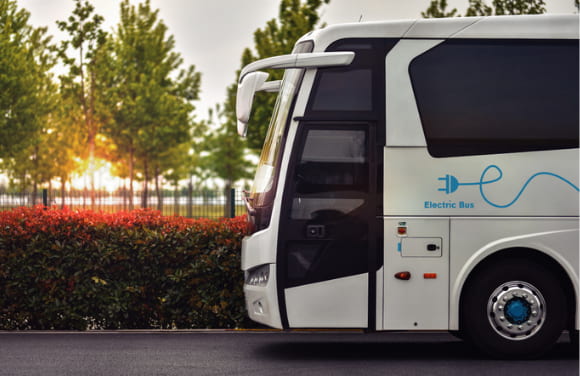
Other Notable MCI Bus Specs
D45 CRT LE Specs
- Weight: 54,000 lbs
- Height: 138 in
- Width: 102 in
- Length: 45.58 ft
- Seats: 54
- Luggage compartment volume: 135 cu ft
- Fuel tank capacity: 183 gal
D4000 Commuter Coach Specs
- Weight: 46,000 lbs
- Height: 137 in
- Width: 102 in
- Length: 40.50 ft
- Seats: 49
- Fuel tank capacity: 164 gal
D4505 Specs
- Weight: 50,000 lbs
- Height: 137 in
- Width: 102 in
- Length: 45.42 ft
- Seats: 55
- Luggage compartment volume: 517 cu ft
- Fuel tank capacity: 164 gal
More information about bus model specifications can be found on MCI’s website.
Other Popular Bus Manufacturers:
-
Van Hool
Van Hool prides itself on its world-renowned coaches and charter buses—with 80% of its vehicles exported across Europe, North America, Africa, and East Asia every year.
Learn More About Van Hool -
Temsa
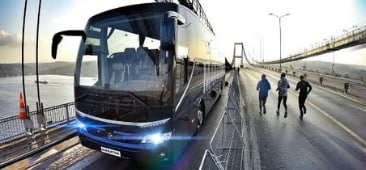
With more than 50 years of experience, TEMSA has built a strong reputation as a producer of high-quality commuter and tour buses in 66 countries around the world.
Learn More About Temsa -
Prevost
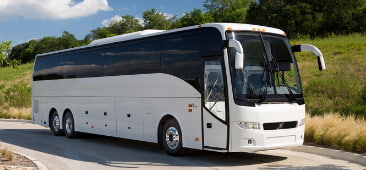
Prevost's reputation for luxury earned them the opportunity to build the frames for Ground Force One, the fleet of motorcoaches used by the President of the United States.
Learn More About Prevost
Learn More About Popular Charter Bus Manufacturers
National Charter Bus is proud to have a selection of MCI charter buses in our network. If you’d like to learn more about what types of buses you could see in your bus rental, give our team a call at 1-844-755-0510, or check out the general types of buses we charter. You can also check out our other pages on bus manufacturers for more in-depth information about the providers who bring the best in the industry to our customers.